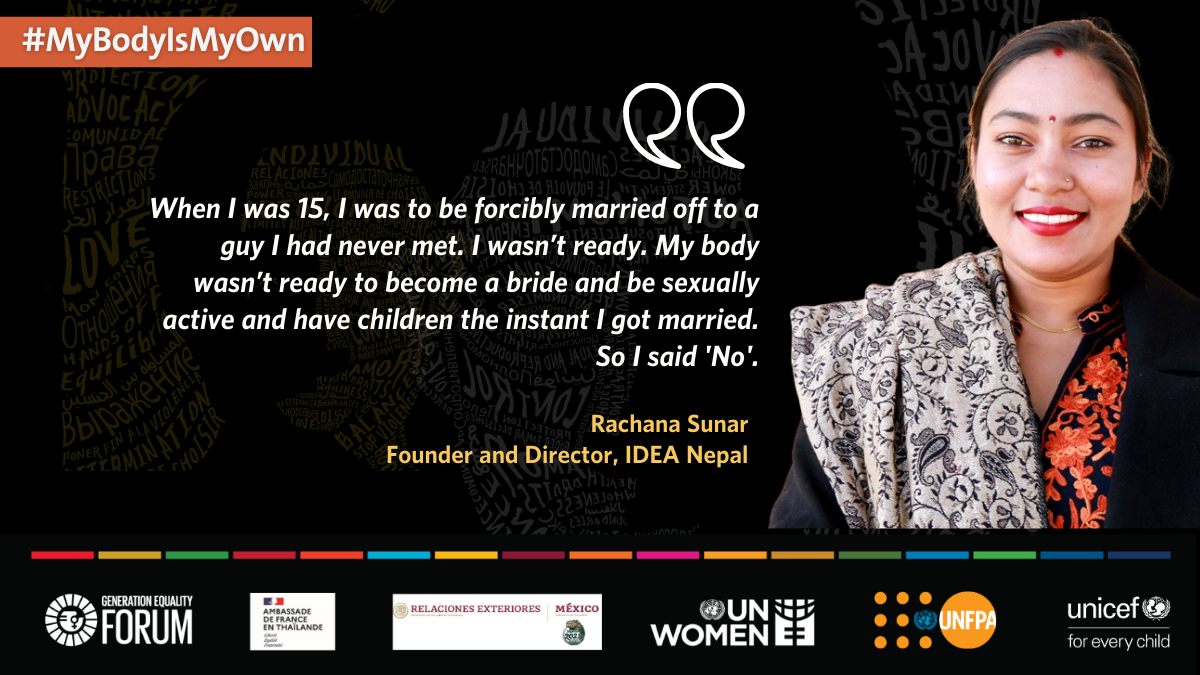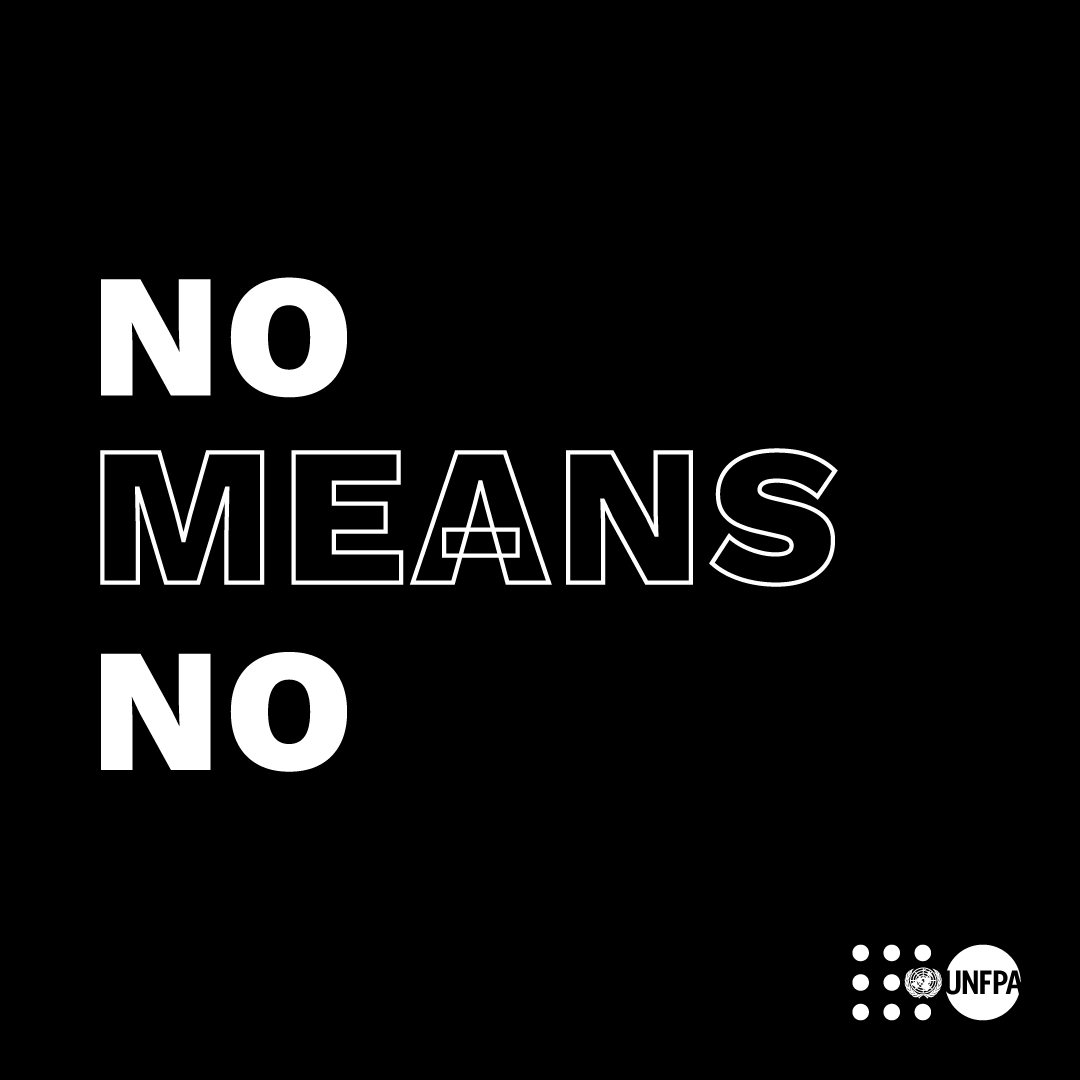BANGKOK, 20 May 2021 - Nearly half of women in 57 countries, including several in the Asia-Pacific region, are denied the right to decide whether or not to have sex with their partners, use contraception or seek health care – egregious violations of bodily autonomy, which should be a fundamental right for all. These are among the key findings contained within My Body is My Own: Claiming the right to autonomy and self-determination, the 2021 State of World Population flagship report from UNFPA, the United Nations sexual and reproductive health agency, and the first-ever UN report focusing on bodily autonomy.
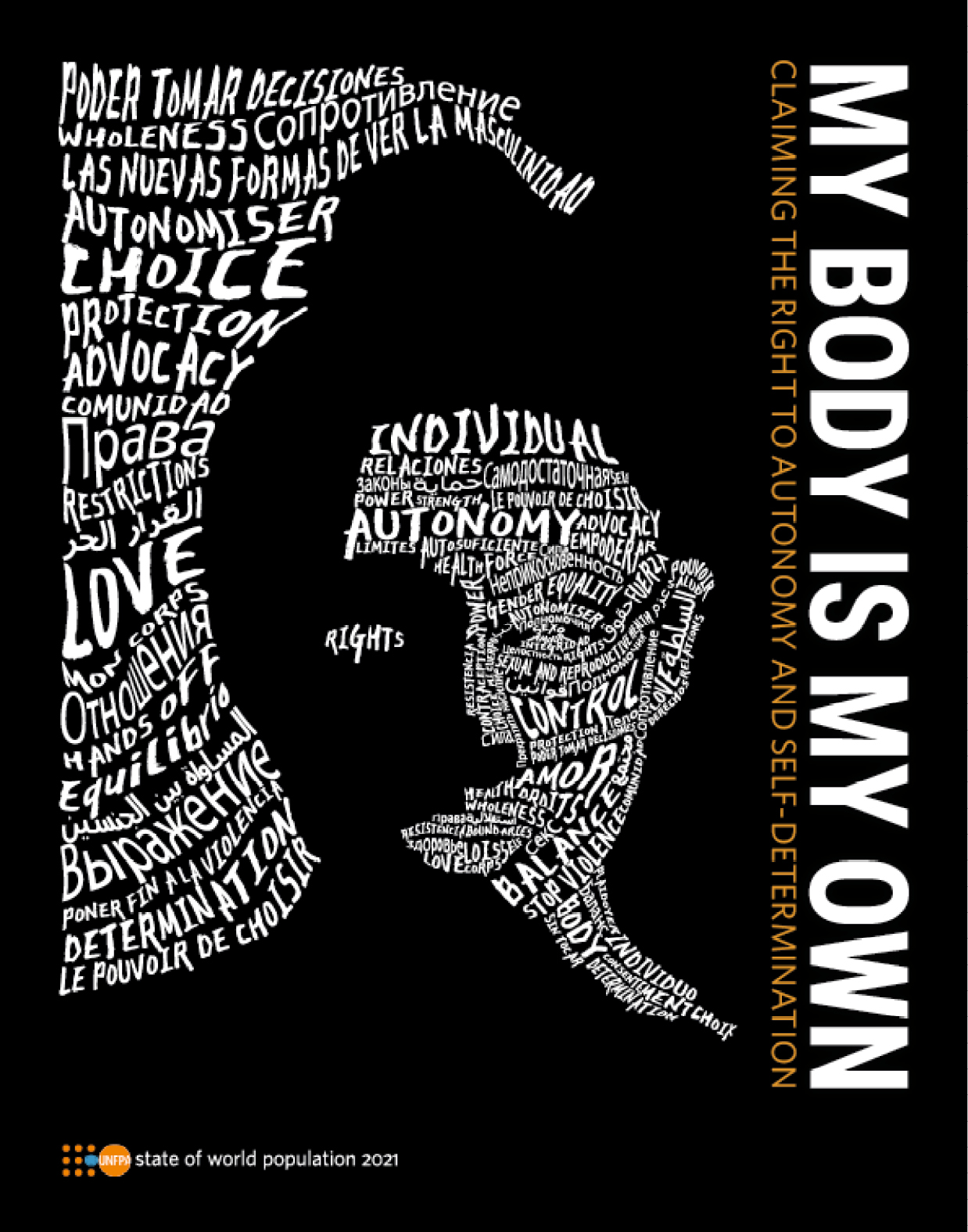
The report’s Asia-Pacific launch was marked via an online event in Bangkok today, with the participation of noted advocates and activists from across Asia-Pacific including Thailand, through the auspices of the Embassy of France in Thailand, the Embassy of Mexico in Thailand and the UN Women Regional Office for Asia and the Pacific, key partners heading the Generation Equality Forum (GEF). The Forum, a civil society centred global gathering for gender equality, is convened by UN Women and co-hosted by the governments of France and Mexico. From the GEF held in Mexico City last March, six thematic Action Coalitions launched their blueprints with gender equality commitments for 2021-2026. UNFPA co-leads and France is part of the GEF Action Coalition on Bodily Autonomy.
Through its groundbreaking report, UNFPA is measuring both women’s power to make their own decisions about their bodies and the extent to which laws in countries support or interfere with a woman’s right to make these decisions.
In the eight Asia-Pacific countries where data are available, only 59.2 per cent of women are fully empowered to make choices over health care, contraception and the ability to say yes or no to sex.
“Bodily autonomy and integrity - the power to make our own choices about our own bodies - are grounded in gender equality and human rights, and are necessary for women’s empowerment and to achieve the Sustainable Development Goals,” noted Bjorn Andersson, UNFPA Asia-Pacific Regional Director. “Denying millions of people, including women and girls, their empowerment, compromises not only individual health and wellbeing but hinders the development of entire societies and countries.”
“We will continue to advocate strongly on these issues by deploying a rights-based approach because this topic is not just about health”, French Ambassador to Thailand H.E. Thierry Mathou highlighted. “There can be no equality between individuals without the right to bodily autonomy and self-determination, and in this regard I would like to commend the valuable report of UNFPA in promoting understanding and progress on these rights.”
Eugenia Lopez Uribe, Latin America & Caribbean CSO representative at the GEF, shared some recommendations that came out of the GEF in Mexico City: “We need to acknowledge that reproductive justice and comprehensive, freely accessible sexual health care remains an unfulfilled priority globally. The States need to fund and design universal health care systems that work for all girls, adolescents and young people, by providing free and subsidised care, removing legislation and policies that require third-parties’ consent, eliminating stigma and discrimination based on their age, and respecting the autonomy of young people.”
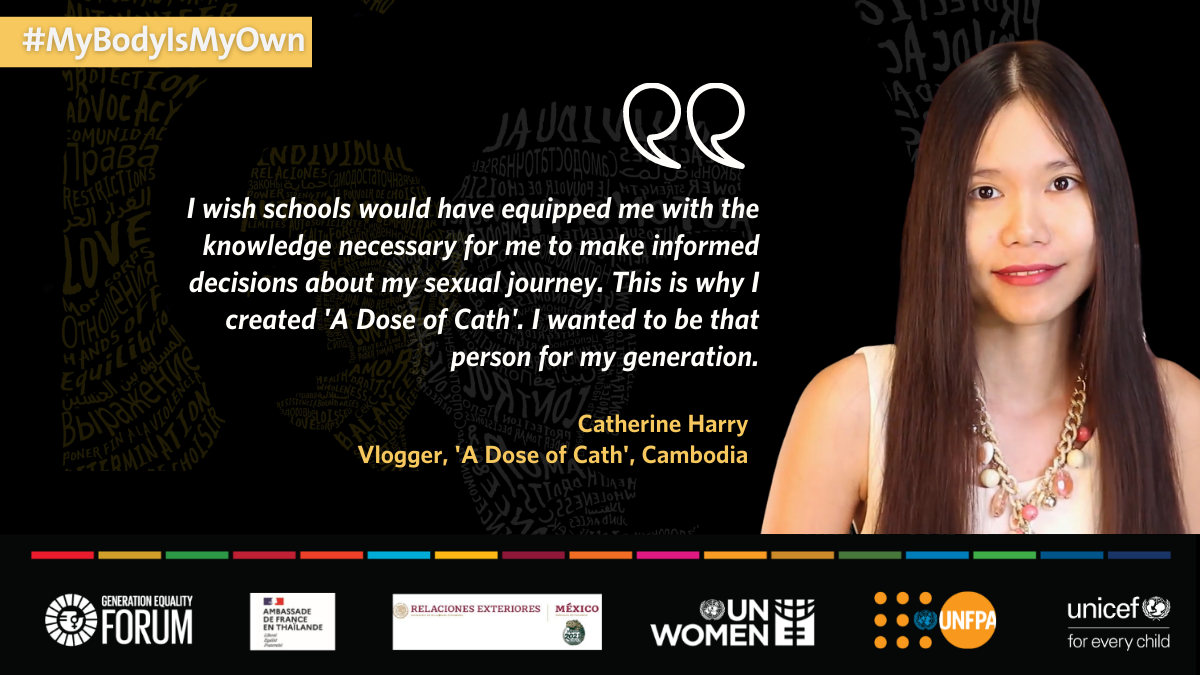
Real solutions to ensuring bodily autonomy, as the State of World Population report finds, must take into account the needs and experiences of those affected, as, for example, Thailand has done in addressing the long-running challenge of adolescent pregnancy, enacting significant legislation with the participation of young persons themselves.
“Because bodily autonomy and integrity influence so many aspects of health as well a decent, dignified life, progress in realizing them will lead not just to achieving sexual and reproductive health and the Sustainable Development Goal on gender equality, but many of the other Goals as well,” said Mohammad Naciri, UN Women Asia-Pacific Regional Director. “This includes SDGs related to promoting health, reducing inequalities and ending poverty. All of these are interlinked, a key message conveyed through the Generation Equality platform in this, the Decade of Action toward achieving the 2030 Agenda and its vision of leaving no one behind.”
*The online Asia-Pacific launch of the UNFPA 2021 State of World Population Report, followed by a UN Women-moderated discussion on addressing adolescent pregnancy in Thailand with multiple stakeholders including UNFPA and UNICEF, can be accessed at: YouTube.com/UNFPAAsia and Facebook.com/UNWomenAsia
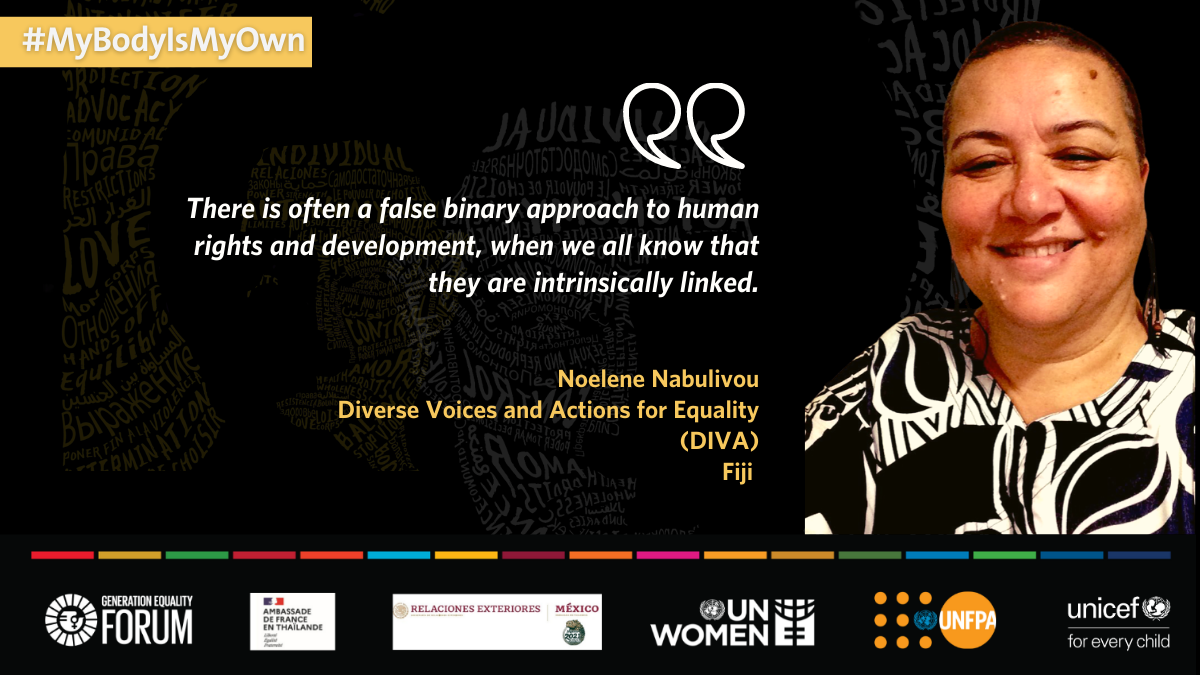
For queries and/or to arrange media interviews, please contact:
UNFPA: wadia@unfpa.org ; +66 848 752 634 / sumalnop@unfpa.org ; +66 819 175 602
UN Women: montira.narkvichien@unwomen.org ; +66 816 688 900
Embassy of France in Thailand: lionel.de-coninck@diplomatie.gouv.fr ; +66 869 005 730
The Generation Equality Forum opened in Mexico City last March, and will culminate in Paris from 30 June to 2 July. Register here to gain access to the GEF's digital platform, to attend nearly 90 events featuring 500 panelists and interact with tens of thousands of participants from around the world.
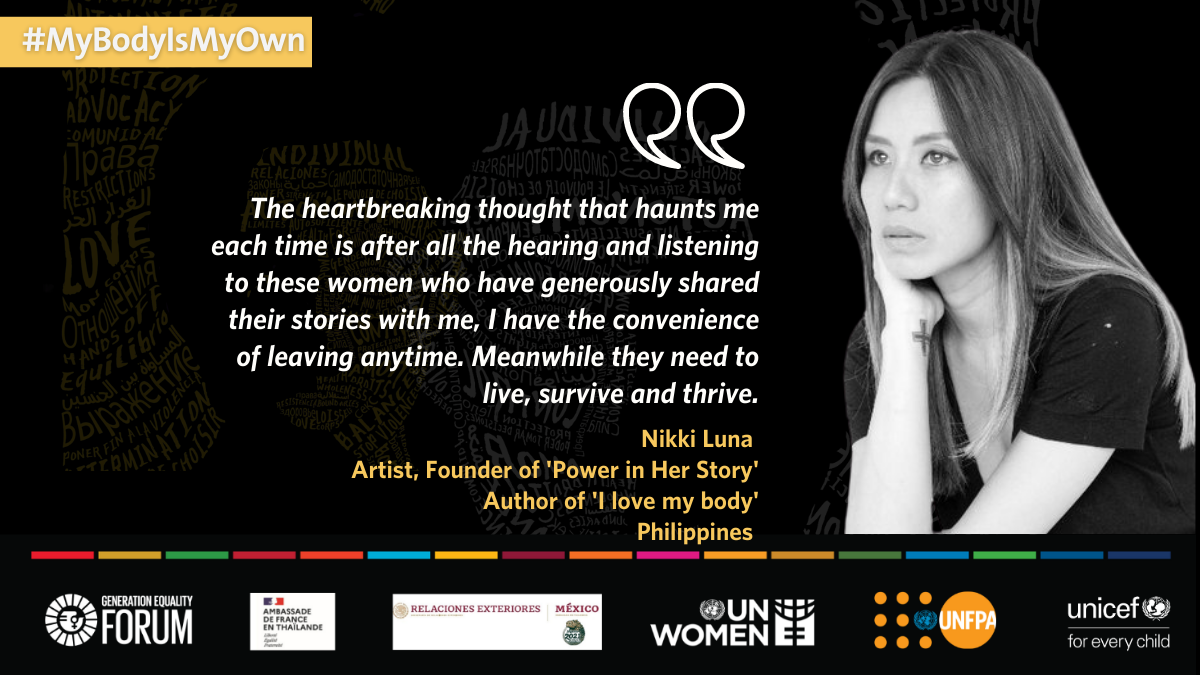
NOTE TO EDITORS:
In the 57 countries studied for the State of World Population Report:
Ø Only 55 per cent of women are fully empowered to make choices over health care, contraception and the ability to say yes or no to sex.
Ø Only 71 per cent of countries guarantee access to overall maternity care.
Ø Only 75 per cent of countries legally ensure full, equal access to contraception.
Ø Only about 80 per cent of countries have laws supporting sexual health and well-being.
Ø Only about 56 per cent of countries have laws and policies supporting comprehensive sexuality education.
Ø Twenty countries or territories have “marry-your-rapist” laws, where a man can escape criminal prosecution if he marries the woman or girl he has raped.
Ø Forty-three countries have no legislation addressing the issue of marital rape.
Ø More than 30 countries restrict women’s right to move around outside the home.
Ø Girls and boys with disabilities are nearly three times more likely to be subjected to sexual violence, with girls at the greatest risk.
The Asia-Pacific launch of My Body is My Own featured powerful speakers, including:
- Rachana Sunar, IDEA, Nepal: Our Autonomy, Our Lives: Noted activist fighting to end child marriage explains how women’s power to control their own bodies is linked to how much control they have in other spheres of life.
- Nikki Luna, Philippines: Laws that Empower, Laws that Control: Renowned artist and activist, who has long worked to strengthen women’s rights and end gender-based violence, discusses how laws impact bodily autonomy and how art can advocate for change.
- Noelene Nabulivou, Diverse Voices and Actions for Equality (DIVA), Fiji: The Power to Say Yes, the Right to Say No: Veteran Pacific region activist discusses how achieving bodily autonomy depends on gender equality and expanding choices and opportunities for women, girls and excluded groups.
To arrange interviews with our speakers, please contact Roy Wadia: wadia@unfpa.org
